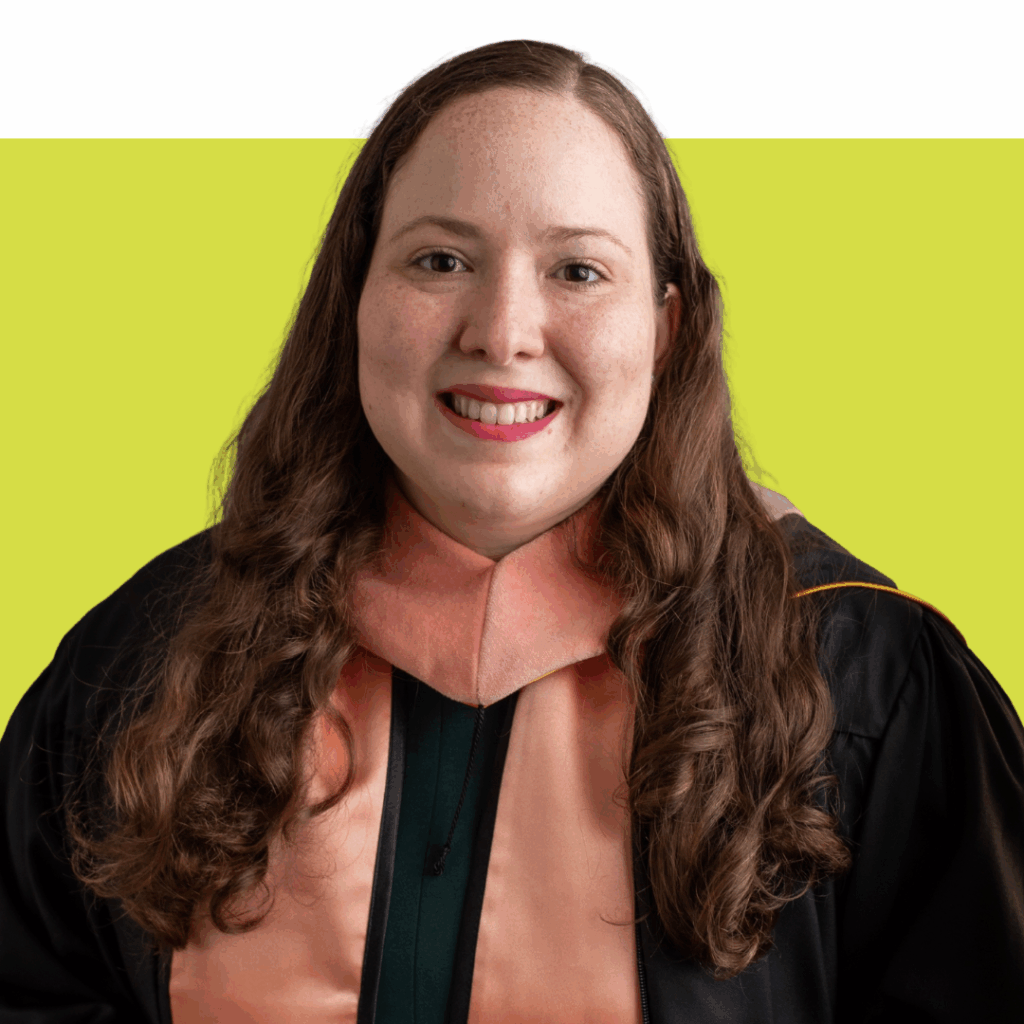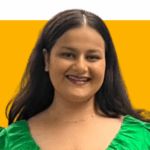
Estefanía Henríquez Luthje is a medical doctor from the Dominican Republic and an early-career public health professional. Through the Fulbright Program, she earned an MPH in Maternal and Child Health (MCH), with minors in Epidemiology and Global Health, from the University of Minnesota-Twin Cities in 2024. Since 2019, she has worked across governmental institutions, academic settings, and NGOs, including the Ministry of Public Health of the Dominican Republic, on initiatives in nutrition, MCH, and non-communicable diseases. Her experience spans program implementation and evaluation, research, and health communications. Alongside her public health work, she continues to pursue her passion for mentorship by providing career and professional development advice to students and graduates in the health sciences. Outside of work, she enjoys baking, crafts, and supporting her husband in producing musical theater,.She is also a proud mom of infant plants. You can follow her professional journey on LinkedIn.
I’ve always loved how MCH complements the way I think. It has given me the language for things I had intuitively felt. I think back to April 2019, during a neonatal resuscitation lecture, when my mind wandered: “What if we just ensured every baby had a healthy start to life?” That question eventually led me to shift my career path from medicine to public health. Years later, through courses with Dr. Zobeida Bonilla and Dr. Drissa Toure, I learned that what I thought was my personal “aha” moment had long been described by the Life Course Theory—the idea that the sequence of events, roles, and relationships we form, shaped by time and place, build our biographies and influence health and well-being. Within this theory, trajectories describe long stretches of life, transitions mark shorter periods of change, and turning points redirect our path through shifts in meaning or behavior. This framework has helped me understand not only the populations I work with, but also myself. So, when Blog editor Mary Kenny invited me to share this follow-up to my last MCH Leads post, I hesitated. I’m still in a transition. But maybe that’s the most honest kind of update, sharing from the middle of the process, not the end.
In 2022, I moved from the Dominican Republic to Minnesota as a Fulbright grantee to pursue my Master’s of Public Health (MPH) in Maternal and Child Health (MCH), formally starting a new trajectory in my life. Those two years completely transformed how I think and work. I learned to approach public health through lenses of critical thinking, ethics, health equity, systems thinking, and evidence-based practice. The social-ecological model became second nature, reminding me that health is less about individual responsibility and more about the conditions that shape it—policies, communities, and institutions. By the end of my MPH, MCH had become more than a field of study; it was a framework that reflected my values and my way of seeing the world. Along the way, my professors, supervisors, and classmates who modeled genuine compassion, collaboration, and humility shaped me. The culture at the University of Minnesota’s School of Public Health, where teamwork, creativity, and care coexist with scientific rigor and responsibility, set a new bar for the kind of spaces where I want to grow and contribute. It also gave me lasting friendships and professional relationships that continue to ground me.
Returning home in 2024, I thought I was just beginning the next step—applying everything I had learned in practice. A little over a year later, I can say that this transition has been longer and more challenging than I anticipated. I had been trained to adapt when moving abroad, but no one had prepared me for what it would mean to move back. I returned with a mind full of ideas and the motivation to put them into action, only to realize that many of those ideas required structures, systems, and mindsets that were not yet in place—like seeds ready to be planted but finding little fertile ground where they could take root. Over time, that energy began to fade—a feeling that was as frustrating as it was frightening. Reverse culture shock is real. It’s the quiet dissonance of returning home changed, yet finding that the world around you feels the same. It has also been the first time in my life that I haven’t been moving toward a new degree or next title. I’m simply learning to be.
Amid this frustration, I began to realize that perhaps what I needed most was not another opportunity, but a pause. After years of running from one goal to the next—from high school to medical school, to my first official job, to the Fulbright Program—my mind and body started asking for something different. At first, that decision felt like losing momentum in a world that prizes constant productivity. But I’ve made my best to see it as an act of courage, a moment to self-reflect and realign. This pause has given me space to clarify what I want my public health career to look like: rooted in life course and social-ecological thinking, guided by evidence, ethics, and teamwork, and sustained by authenticity, creativity, autonomy, and well-being. I’m trying to redefine success not as the accumulation of achievements, but as alignment; not as pace, but as purpose. I want my next steps to feel intentional, sustainable, and deeply human.
In my previous MCH Leads piece, I shared my goal of supporting students and recent graduates—especially women and international trainees—through academic and career advising. That independent work has continued to grow. Over the past year, I’ve had the privilege of mentoring hundreds of students in one-on-one sessions, group workshops, and webinars. I’ve met incredible people from across Latin America, South Asia, and the Middle East who, like me, are navigating systems that weren’t built with them in mind. Many have shared their fears, hopes, and exhaustion—the kind of vulnerability that reminds me how much courage it takes to dream beyond uncertainty. In those moments, my role has often been to listen, hold space, and offer comfort, which has deepened my sense of purpose in this work. Through this, I’ve realized that I, too, need that same kind of care and compassion, especially in this period of transition. Thankfully, I’ve found it both locally and through my mentors at UMN, who continue to guide me with generosity and honesty.
Most importantly, I’ve learned that mentorship can begin inward—by applying to myself the same compassion, structure, and encouragement I offer to my mentees. As I often tell them, it all begins with self-reflection, one of our MCH Leadership Competencies. You have to know yourself before you can share yourself with the world. In this season, I’m learning to take my own advice. I’m giving myself room to slow down, listen, and rediscover what kind of professional, colleague, and woman I want to be. By modeling this vulnerability and reflection, I hope to give others permission to do the same, especially in a world that rarely pauses. As I navigate this transition, I’m learning to stop seeing uncertainty as a gap to fill and instead see it as fertile ground—or at least the planter where I can create my own soil, made up of my values and priorities, to nurture the seeds I want to plant. One of those seeds is Compass Lab, my independent space for academic advising and public health consulting, where I help students, early-career professionals, and institutions navigate their paths with clarity, confidence, and care. It’s still in its early stages, slowly taking shape and growing from the same values that ground my work.
The Life Course Theory reminds us that every transition can become a turning point, and I trust this one will too—for the better. For now, I’m mentoring myself through it, one reflection, one day, and one small act of care at a time, knowing that these quiet pauses often prepare us best for what comes next.

